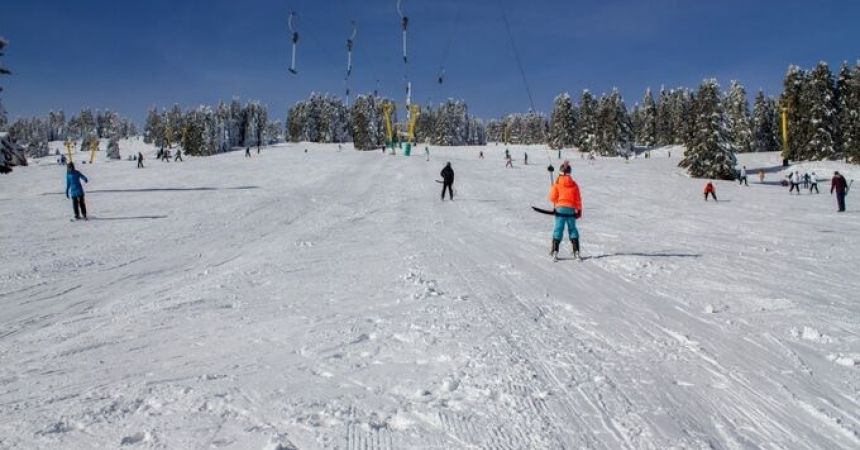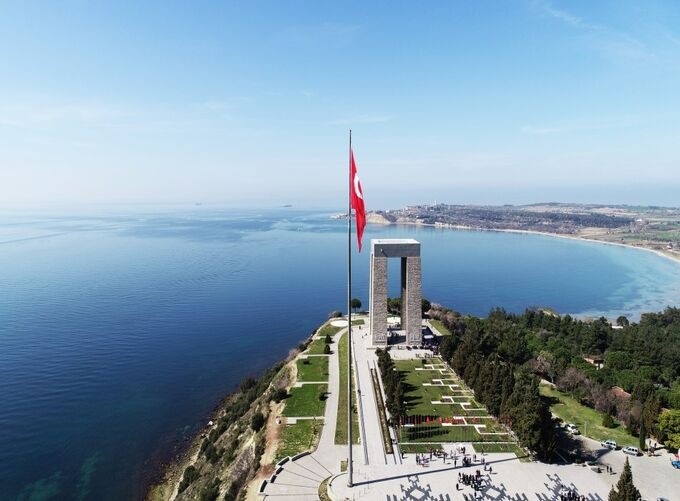
Turkey Weather in February
February may not be the most popular time to visit Turkey, but this month offers a unique and enchanting experience for travelers willing to embrace the winter season. From snow-covered landscapes in Cappadocia to mild temperatures along the Mediterranean coast, Turkey's diverse geography ensures that there's something for everyone. In this comprehensive guide, we will delve into Turkey's weather in February, explore regional variations, provide tips on what to pack, highlight festivals and events, and discuss the pros and cons of visiting during this winter month.
Introduction to Turkey in February
Turkey is a land of diverse climates, influenced by its vast size and geographical features. From the snowy mountains in the east to the mild coastal regions in the south and west, February presents a range of weather conditions across the country. While winter weather may deter some travelers, those who venture to Turkey in February can enjoy fewer crowds, stunning landscapes, and a unique cultural experience.
February marks the heart of winter in Turkey. As the days begin to lengthen and the air cools, visitors can explore about souvenirs the country's rich history and natural wonders without the hustle and bustle of peak tourist season. Whether you prefer skiing in the mountains, exploring ancient ruins, or enjoying cozy nights in vibrant cities, Turkey in February has much to offer.
General Weather Patterns in Turkey
Turkey’s weather in February varies significantly from region to region. Understanding these patterns will help you plan your itinerary and activities effectively.
Coastal Regions of Turkey
In the Mediterranean and Aegean coastal areas, such as Antalya, Bodrum, and Izmir, February temperatures remain mild compared to the rest of the country. Average daytime temperatures range from 10°C to 16°C (50°F to 61°F), with occasional rain showers. While the sea might be too chilly for swimming, the pleasant weather allows for leisurely strolls along the coastline and visits to historical sites without the crowds.
Interior Regions in Turkey
Moving inland to cities like Ankara and Cappadocia, February brings colder temperatures. Daytime highs in Ankara can reach around 5°C to 10°C (41°F to 50°F), while nighttime lows can drop to -5°C (23°F) or lower. Snow is common in this region, especially in Cappadocia, where it creates a magical winter wonderland, transforming the fairy chimneys and valleys into a breathtaking landscape.
Eastern Turkey
In the eastern regions, such as Erzurum and Kars, winter is in full swing. Expect heavy snowfall, icy conditions, and freezing temperatures that can plummet to -10°C (14°F) or lower. These areas are known for winter sports and are perfect for skiing enthusiasts. The snow-covered mountains and scenic beauty attract visitors looking for adventure and a unique winter experience.
Regional Breakdown of February Weather
Istanbul, Turkey
Istanbul experiences a mild winter in February, with temperatures ranging from 5°C to 12°C (41°F to 54°F). While it may not be freezing, the city can be damp and rainy, with an average of 90 mm of rainfall throughout the month. Snowfall is rare but possible. The winter atmosphere adds a cozy charm to this historic city, making it an excellent time for museum visits, café hopping, and exploring the famous bazaars. Key attractions such as the Hagia Sophia and Topkapi Palace can be enjoyed with shorter queues and a more relaxed pace.
The Mediterranean Coast (Antalya, Alanya)
The Mediterranean coast enjoys milder weather in February, with average temperatures around 10°C to 16°C (50°F to 61°F). Rain is more frequent during this month, but sunny days are still common. While swimming may not be an option, the pleasant temperatures make it an ideal time for outdoor activities, such as hiking, visiting archaeological sites, or enjoying local cuisine at seaside restaurants.
Cappadocia of Turkey
Cappadocia transforms into a winter wonderland in February, with daytime temperatures ranging from -1°C to 7°C (30°F to 45°F). Snowfall is common, and the fairy chimneys and cave dwellings take on a magical quality. Hot air balloon rides are still available, offering breathtaking views of the snow-covered landscape. Visitors can explore the region's unique rock formations, underground cities, and ancient churches without the summer crowds.
Ankara, Turkey
Ankara, Turkey’s capital, experiences colder weather in February, with average temperatures between -5°C and 5°C (23°F to 41°F). Snow is not uncommon, and the city's parks and historical sites take on a picturesque winter charm. Indoor attractions such as museums and the Anıtkabir (Atatürk’s Mausoleum) are popular during this season, providing visitors with a rich cultural experience.
Eastern Turkey (Kars, Erzurum)
The eastern provinces of Turkey experience harsh winters, with temperatures often dipping below -10°C (14°F). Kars and Erzurum are popular destinations for winter sports, particularly skiing. The region is famous for its stunning landscapes, including the frozen Lake Çıldır and the historic Kars Castle, which looks stunning against the snowy backdrop. Winter festivals and events add to the charm, attracting both locals and tourists.
What to Pack for Turkey in February
Packing for Turkey in February requires careful consideration of the diverse weather conditions. Here are some essential items to include in your luggage:
Clothing in Turkey
Layered Clothing:
Due to varying temperatures, layering is crucial. Pack thermal tops, sweaters, and long-sleeve shirts that can be easily added or removed.
Waterproof Jacket:
A waterproof and windproof jacket will keep you dry during rain showers, especially in coastal areas.
Warm Accessories:
Hats, gloves, and scarves are essential for staying warm in colder regions like Cappadocia and eastern Turkey.
Comfortable Shoes:
Opt for waterproof, comfortable shoes or boots, especially if you plan to explore snowy landscapes or historical sites.
Ski Gear:
If you’re heading to ski resorts, don’t forget your ski gear, including waterproof pants, thermal layers, and goggles.

Electronics and Essentials
- Camera: Capture the stunning winter landscapes and historical sites. Ensure you have extra batteries, as cold weather can drain battery life quickly.
- Power Adapters: Turkey uses the Type C and Type F power plugs, so pack appropriate adapters if needed.
- Medications: If you take any medications, be sure to bring enough for your trip, along with basic first-aid supplies.
Festivals and Events in Turkey in February
February is a vibrant month in Turkey, with various festivals and events that showcase the country’s rich culture and traditions.
International Antalya Film Festival
Although the main event takes place in November, many smaller screenings and events occur throughout the winter months in Antalya. This festival celebrates both national and international cinema, making it a great time for film enthusiasts to visit the city.
Sarıkamıs Ski Festival
Taking place in the eastern province of Kars, the Sarıkamış Ski Festival is a popular winter event attracting locals and tourists alike. With competitions, ski races, and entertainment, this festival celebrates winter sports and the beautiful snowy landscapes of the region.
Valentine’s Day Celebrations
In larger cities like Istanbul and Ankara, Valentine’s Day is celebrated with romantic dinners, special events, and decorations. Restaurants and cafes often offer special menus and promotions for couples, making it a lovely time to enjoy the ambiance of these vibrant cities.
Best Places to Visit in Turkey in February
Visiting Turkey in February allows you to explore a range of destinations that are less crowded and offer unique experiences.
Ski Resorts in Turkey
- Uludag: Located near Bursa, Uludağ is one of Turkey’s most popular ski resorts. With well-maintained slopes and modern facilities, it’s an ideal destination for skiing and snowboarding.
- Palandöken: Near Erzurum, Palandöken is known for its excellent skiing conditions and stunning mountain scenery. The resort offers various ski runs catering to all skill levels.
- Kartalkaya: Situated in the Bolu province, Kartalkaya is another favorite ski destination, featuring a variety of slopes and après-ski activities.
Historical Sites with Fewer Crowds
- Ephesus: One of the best-preserved ancient cities, Ephesus is less crowded in February, allowing you to explore its stunning ruins in peace.
- Troy: Visit the legendary city of Troy without the summer crowds. The ancient ruins offer a fascinating glimpse into history.
- Pamukkale: While the thermal pools may be cooler, visiting Pamukkale in winter allows for a unique experience of this natural wonder without the crowds.
Natural Wonders
- Cappadocia: The snow-covered landscape of Cappadocia is breathtaking in February. Enjoy hot air balloon rides, explore underground cities, and visit the region's unique rock formations.
- Mount Ararat: For adventurous travelers, exploring the area around Mount Ararat in winter offers stunning views and opportunities for trekking in the snow.
Pros and Cons of Visiting Turkey in February
Benefits
- Fewer Crowds: With fewer tourists, you can enjoy popular sites and attractions without long lines or overwhelming crowds.
- Lower Costs: February is considered an off-peak month, meaning you can find lower prices for accommodation and flights.
- Unique Experiences: Winter offers unique opportunities for skiing, exploring snow-covered landscapes, and enjoying winter festivals.
Drawbacks
- Cold Weather: Depending on the region, temperatures can be quite low, which may not appeal to everyone.
- Limited Coastal Activities: While coastal regions are milder, swimming and beach activities are usually off-limits.
- Travel Disruptions: Heavy snowfall in some areas can lead to travel disruptions, particularly in eastern Turkey.
Travel Tips for February in Turkey
Check the Weather Forecast:
Keep an eye on the weather in the regions you plan to visit, as conditions can change quickly.
Plan Indoor Activities:
Have a mix of indoor and outdoor activities planned in case of adverse weather.
Book Accommodation in Advance:
Although February is off-peak, it’s still wise to book accommodations in advance, especially in popular areas.
Transportation:
Consider renting a car or using local transportation to navigate between regions. Be cautious of icy roads in mountainous areas.
Enjoy Local Cuisine:
Take advantage of cozy restaurants serving hearty winter dishes, such as lentil soup, kebabs, and delicious baklava.
Turkey Travel Guide: February Weather Insights
Visiting Turkey in February offers a unique opportunity to experience the country's diverse landscapes, rich history, and vibrant culture in a quieter setting. Whether you're exploring the snow-covered fairy chimneys of Cappadocia, hitting the slopes in eastern Turkey, or enjoying the mild temperatures along the Mediterranean coast, Turkey has something to offer every traveler. Wonders Of Turkey Tour



